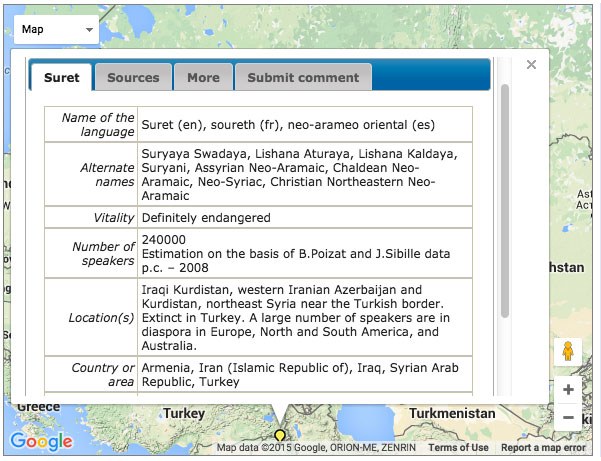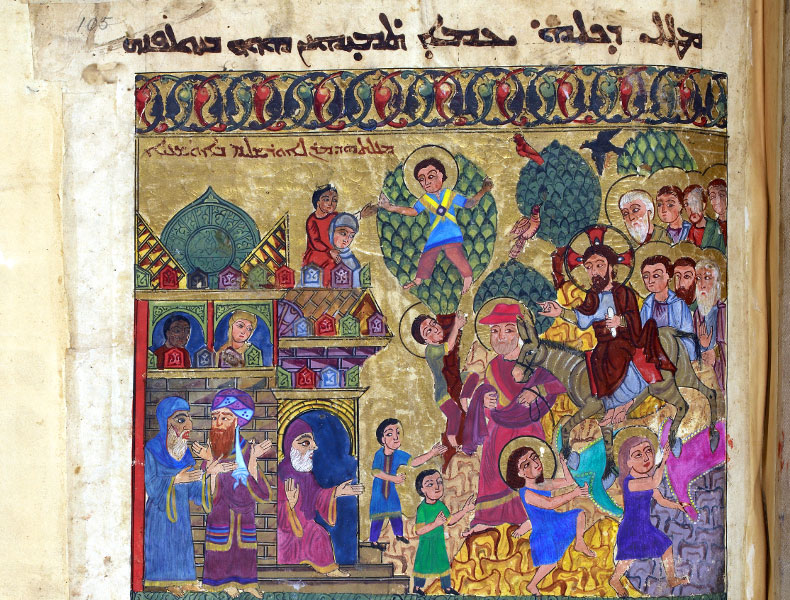Did Jesus really speak our language?
The UNESCO Atlas of the World’s Languages in Danger strangely lists the English name of our language as “Suret”, which is one of the ways of saying “Assyrian” in Assyrian but certainly isn’t a recognisable English name for the language. It then goes on to list 8 alternate names, including the more common “Assyrian Neo-Aramaic”. 
We know that Jesus spoke Aramaic, it was the main language spoken in the region at the time. Obviously languages develop over time, so how different does a language have to be from its original source, before you say it’s a different language?
This website asserts that Aramaic can be dated to five periods, dating from inscriptions that go back to the first millennium BC:
- Old Aramaic, 925-700 BC
- Official or Imperial (Assyrian) Aramaic, 700-200 BC
- Middle Aramaic, 200 BC. - 200 AD
- Late Aramaic, 200-700
- Modern Aramaic, 700 to our time
So that puts Jesus speaking Middle Aramaic, and us speaking Modern Aramaic. The Middle Aramaic that Jesus spoke must have been somewhat different to the Old Aramaic that our ancestors had spoken 700 years before that!
Compare it to English. Who didn't struggle to comprehend Shakespeare in high school – and that was only written 500 years ago? But you wouldn't say Shakespeare didn't speak English. You might refer to it as Shakespearean English, or Elizabethan English, but it's still English.
You can apply the same principal to Assyrian. Our language is Aramaic, evolved. Our ancestors spoke an early version of it. Jesus spoke an evolved version of it. And we speak a version that's further evolved.
But unless you're going to claim that Shakespeare didn't speak English, you can't say that Jesus didn't speak our language.


